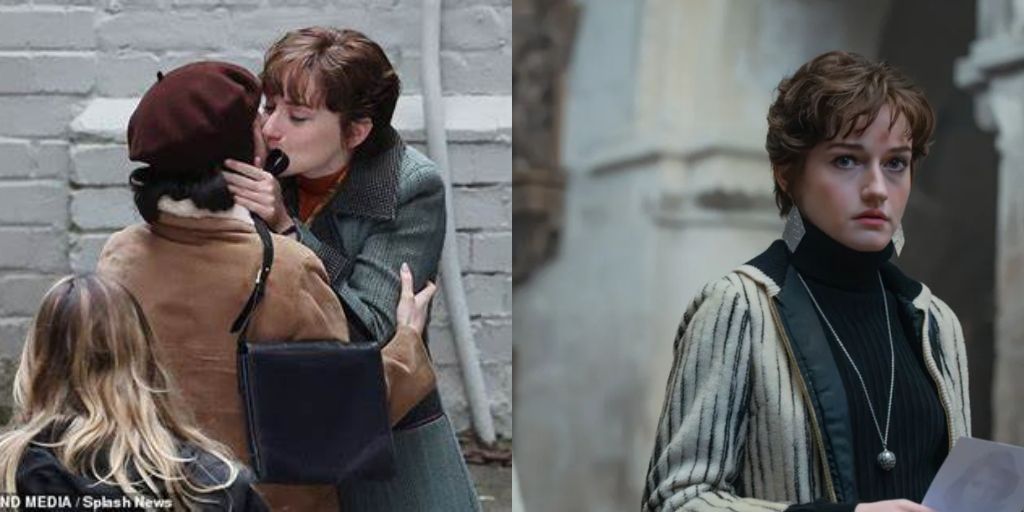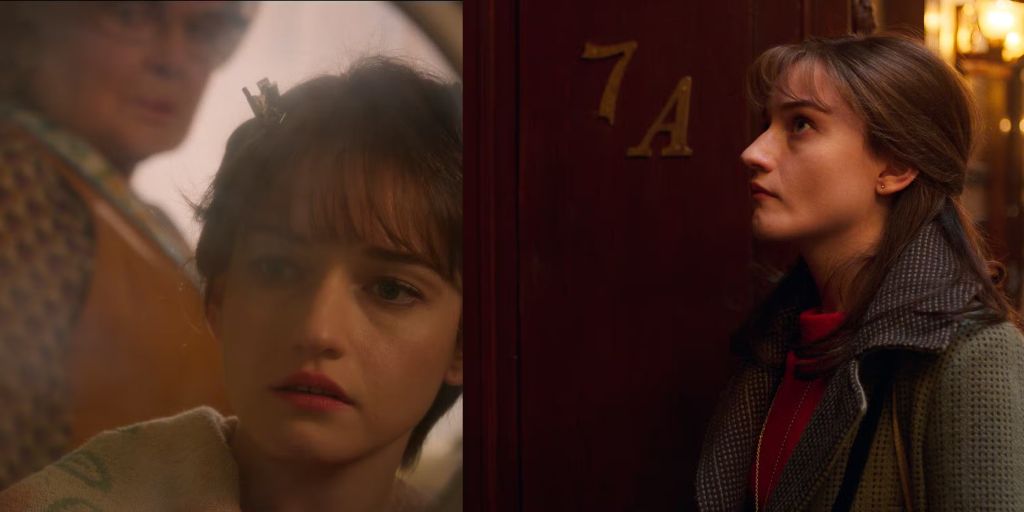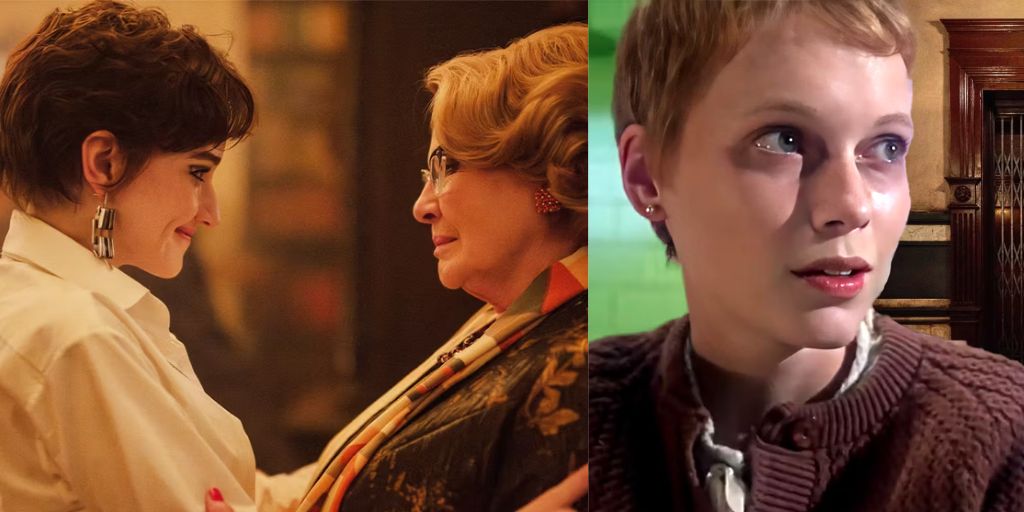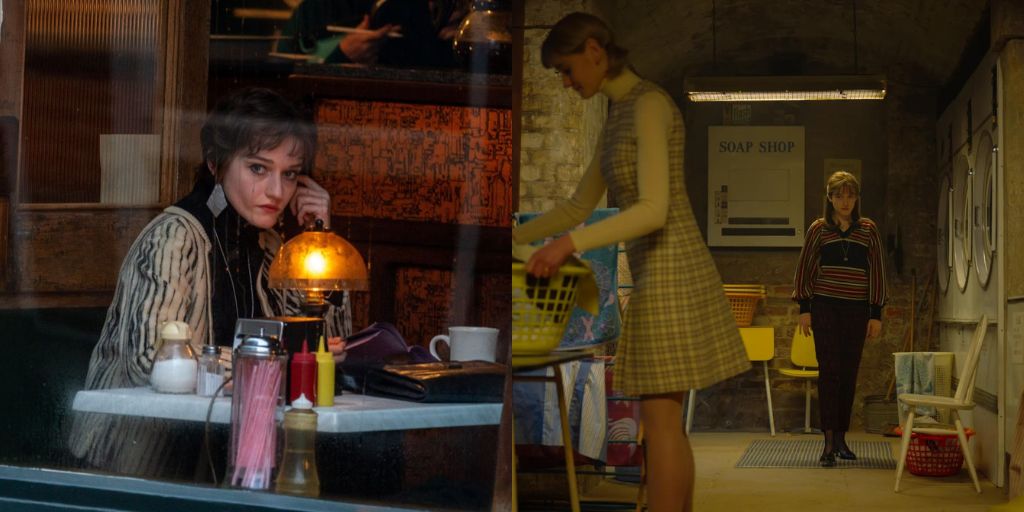I am not the first to say this, and I won’t be the last, but I will shout it out anyway: I am very tired of legacy sequels. Or prequels.
Or whatever studios choose to make to take advantage of existing intellectual properties that did not need a follow-up. Top Gun: Maverick did it right, but that does not mean every sequel that comes after will have the same success. This is especially true if Tom Cruise is not involved.
This is the case for Rosemary’s Baby, a classic horror film. Paramount decided that this film needed to be resurrected for a prequel called Apartment 7A, which just premiered at Fantastic Fest. Apartment 7A walks the same path as the nearly 60-year-old original without changing anything.
The plot is almost the same: a young dancer named Terry (Julia Garner) moves into an apartment in New York City that she cannot afford. She is encouraged by her wealthy, elderly neighbors (Dianne Wiest and Kevin McNally).
She soon discovers that she has been forced into a dark situation, becoming pregnant against her will for the chance to achieve her dreams. If you remove the clueless husband from the original film, it is nearly an exact copy.
Apartment 7A Adds Nothing to the Legacy of Rosemary’s Baby
This year has seen many sequels, from Deadpool and Wolverine to Twisters dominating the box office. But why must we continue to explain how a franchise works? Why do we take away the magic of leaving some things to our imagination?
This approach works even less often in horror, where the appeal comes from the unknown, from things hiding in the shadows that we cannot explain. There are a few exceptions to this rule, such as The First Omen, because if you removed the references to the original, it could stand alone without the pressure of being a sequel.
It does not repeat old stories, and audiences do not already know what will happen. It understands that fear can move a story forward in horror. So, why did Apartment 7A work so hard to explain their own little demon, which only takes the fun out of the movie?
There is not much fun to be had here, even if you love the original film. The setup is strange, even if we ignore the unsettling nature of Terry’s neighbors and their little Satanic cult. The young dancer, hurt after a bad fall in a production of Kiss Me, Kate, finds herself involved with a Broadway producer who is bad news from the start.

He is a danger, practically standing under a bright sign saying, “Look at me! I’m going to take advantage of you for a chance at success!” Even when it is so clear who the real villain is, the film goes out of its way to show you how to feel, right down to Terry’s protests about having children, especially demonic ones.
Julia Garner’s Terry Is No Match for Mia Farrow’s Rosemary
This kind of simplicity does not help Garner here. She will be compared to Mia Farrow countless times, even by this reviewer, despite trying to stay objective. This is unavoidable, especially when Terry gets a mid-film haircut from her demanding neighbor.
However, it is not nearly as iconic as Farrow’s famous Vidal Sassoon cut. (I know this because I took a picture of that hairstyle to the salon when I got my blonde pixie cut.) I cannot tell if it is the script’s clear view of morality that makes Terry so dull, or if it is that Garner is not delivering her best performance (which is a far cry from her Emmy-winning work in Ozark), particularly in the film’s final scene.
Compared to Farrow, whose horrifying scream at the sight of her child is unforgettable in cinema history, Garner is just another forgettable leading lady.
Dianne Wiest, on the other hand, is enjoying her role to the fullest. It is a joy to watch actors grow into roles like this. She is the highlight of the film and perhaps the only part worth watching. I cannot tell exactly what kind of accent she is trying to use. Is it New York? Is it Jersey?

Who knows! But anytime someone puts on a voice that sounds just like my elderly cousin Carol, I am all for it. Kevin McNally is also present, but it is hard for anyone else to shine when Wiest steals every scene she is in, even the climactic ones for Terry.
Apartment 7A Lacks the Atmosphere of Rosemary’s Baby
The film does so little to make me care about the girl before Rosemary that I found myself wondering how she would die to set up the events of the original film. As much as I dislike praising Roman Polanski, Rosemary’s Baby has a mood to it; a tone that makes you feel uneasy, rather than just a series of scenes with some outdated furniture and a bad haircut.
Apartment 7A, on the other hand, does not try to make you feel disturbed, except for a few jump scares that belong in a haunted house rather than a real film.
It never truly deals with the horror of what is happening to Terry. It simply shows you what is happening, like watching paint dry. You know from the start who the villains are, what the stakes are, and where the story is going. So why bother watching until the end?
It is hard to care about Terry when it is clear that she is just an obstacle for the antichrist before he gets to poor Rosemary. Many people were disappointed to find that Twisters was essentially a rehash of the original film with a new coat of paint. Apartment 7A has the same issue.
Sure, our views on pregnancy and a woman’s right to choose have changed, which alters the story, but that does not make anything better. Instead, it places it firmly in modern times, distancing it from the story it claims to be a prequel to.
Rosemary’s Baby is the ultimate antichrist story, a tale about intimacy and childbirth as a violation and horror of the body in a way that few other films have managed since.
It makes my stomach turn to think of being betrayed in such a deep way, even as someone who is not a fan of Satanic Panic stories and feels uncomfortable about them. Apartment 7A only manages to pour a cold bucket of water on those feelings.
The article critiques Apartment 7A, a prequel to the classic horror film Rosemary’s Baby. The author expresses frustration with legacy sequels and highlights that Apartment 7A fails to bring anything new to the table, merely repeating the original’s plot.

Julia Garner’s performance as Terry struggles to match Mia Farrow’s iconic portrayal, while Dianne Wiest shines as a memorable character.
The film lacks the unsettling atmosphere of the original, relying on predictable scares instead. Ultimately, it does not effectively capture the themes of intimacy and horror that made Rosemary’s Baby significant, leaving viewers feeling disappointed.
Apartment 7A premiered at Fantastic Fest. It will be available for viewing on VOD and Paramount+ on September 27.




